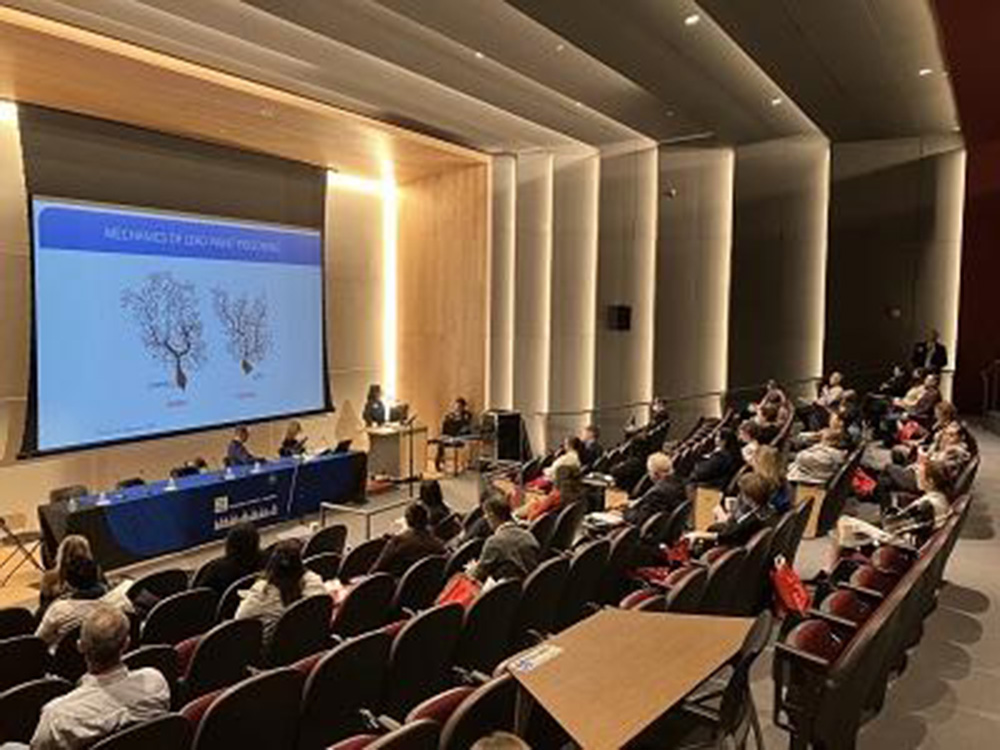 ‘Prevention’ was the implicit theme of the 2022 Summit to End Childhood Lead Poisoning, which took place Friday, September 30, in Providence, Rhode Island. The Rhode Island Department of Health (RIDOH) and the RI Office of the Attorney General sponsored the event, which brought together thought leaders across government and academia in order to curb cases of lead poisoning in the state.
‘Prevention’ was the implicit theme of the 2022 Summit to End Childhood Lead Poisoning, which took place Friday, September 30, in Providence, Rhode Island. The Rhode Island Department of Health (RIDOH) and the RI Office of the Attorney General sponsored the event, which brought together thought leaders across government and academia in order to curb cases of lead poisoning in the state.
“Lead poisoning is a preventable tragedy, completely preventable, and yet it’s all too prevalent here in Rhode Island,” said Senator Jack Reed to the crowded auditorium at Rhode Island College’s Gaige Hall. “Children exposed to lead are seven times more likely to drop out of school. Before they enter first grade, they are in serious, serious need of help. Rates of lead exposure have fallen in Rhode Island, but they’re still too high. Doing things such as simply raising a window can produce lead exposure—who doesn’t do that?”
“An estimated 80% of Rhode Island houses were built before 1978, when lead-based paints were banned from residential use in the US. Currently, 66,000 children under the age of five live in those houses,” said Joseph Braun, associate professor of epidemiology at the Brown University School of Public Health, where he also serves as director of the Center for Children’s Environmental Health. Braun was a featured speaker at the Summit.
In 2020, 472 children under the age of six were diagnosed with lead poisoning in the state, according to data from RIDOH. This is an increase from 2019, when the number of newly lead-poisoned children was 388, and it makes Rhode Island home to the second highest number of children under the age of six with severe lead poisoning in New England.
Exposure to lead can have lifelong effects. “A doubling of blood lead levels is associated with a 72% increased risk of aggressive behaviors,” Braun said. Lead poisoning also “results in a 6.9 point decline in IQ. And it’s estimated that each IQ point is worth a loss of $17,000 in lifetime earnings.”
So what’s the solution? Braun says it begins with actions in the home, outlining a method of abatement that should be carried out before a child is born. This includes dust control, clean up, and clearance testing after any renovations or repairs; covering lead-contaminated soil with groundcover; installing water filters, and repainting peeling surfaces. Braun also recommends installing plastic trough liners in windows, and replacing windows if more than 10% of the surfaces are deteriorated.
For Braun, the bigger picture is this: public policy needs to support public health initiatives from the outset, preventing ill effects before they can do harm. “If we safely and effectively abate lead hazards,” Braun said, “and we enforce policies that limit lead exposure in homes, our kids will be healthier and better able to live up to their full potential. These measures will also reduce education and health care costs.”
Lead poisoning is closely tied to the environmental conditions that fall under the category of social determinants of health. And access to safe housing is a key public health initiative that may curb cases of lead poisoning in the state. The median household income in Rhode Island is $70,305 and Braun points out that many residents can’t afford to purchase a home in the state. To add to the housing issues, RI is short 24,000 housing units for low-income families.
“Families,” says Braun, “need safe and healthy places to live.”
Along with Senator Reed and Professor Braun, the Summit included talks from Attorney General Peter Neronha; Rhode Island College President, Jack Warner; and RIDOH Deputy Director, Seema Dixit. The event concluded with a panel discussion featuring representatives from the RI Center for Justice, the Childhood Lead Action Project, and RI Housing.